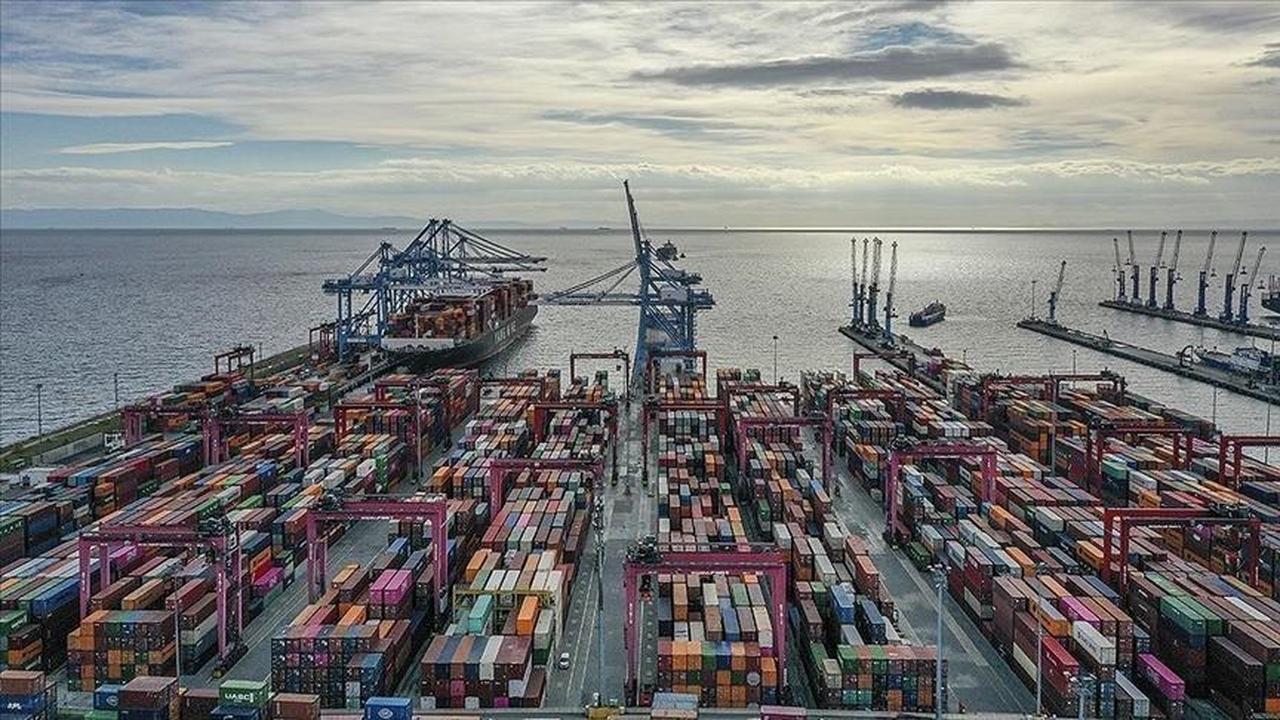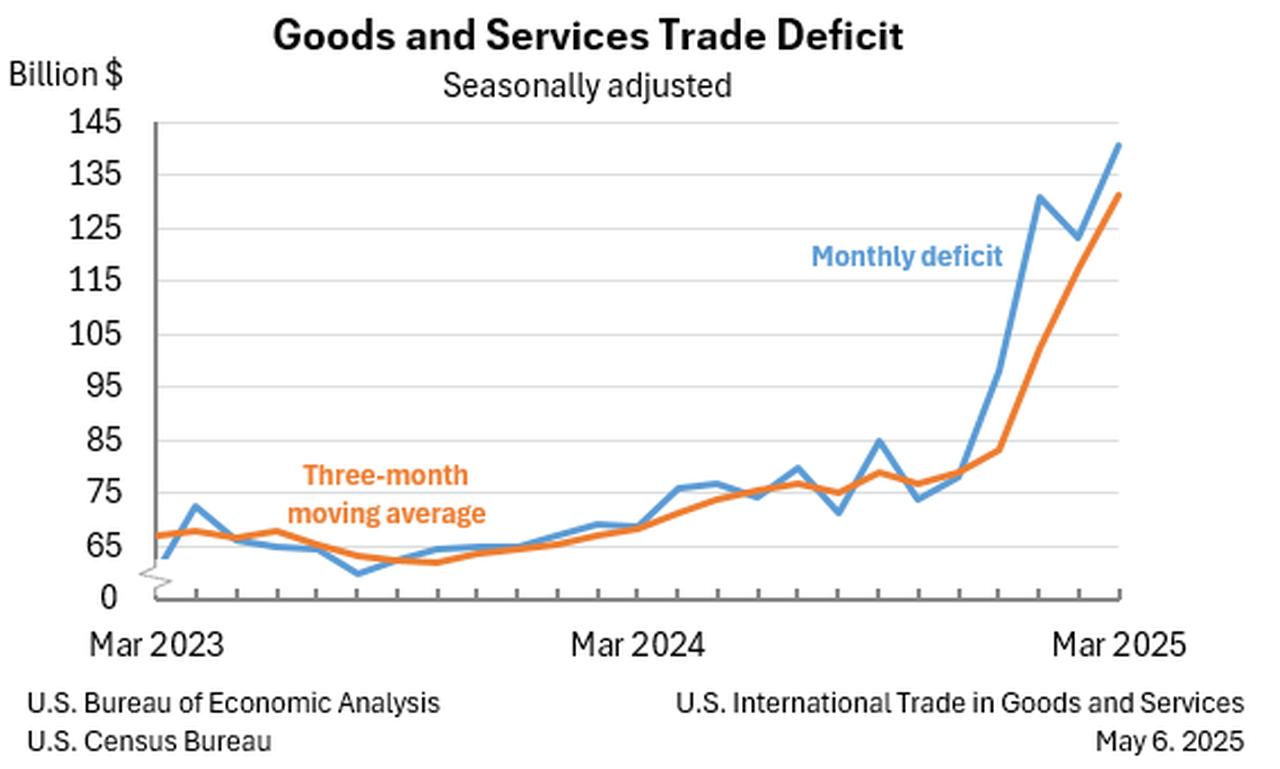
The U.S. trade deficit reached a record $140.5 billion in March, up 14% from February, driven by a notable surge in imports ahead of President Donald Trump's tariff rollout, according to data released Tuesday by the Commerce Department.
The record deficit occurred just before President Trump implemented steep tariffs on Chinese imports and baseline 10% levies on goods from most other trading partners. Additional tariff hikes, slated for various countries, were delayed until July to allow negotiations on existing trade deals.
Economists warn that this front-loading of imports may later reverse, potentially dampening domestic demand once tariffs take full effect.

Imports climbed 4.4% to $419 billion as businesses and consumers accelerated purchases to avoid higher costs associated with planned tariff increases. The import of consumer goods led this surge, rising by $22.5 billion, driven largely by electronics, apparel, and household items. Industrial supplies and materials also saw notable increases, contributing to the overall import expansion.
Exports experienced only modest growth, edging up 0.2% to $278.5 billion. While agricultural exports, including soybeans and corn, posted gains, capital goods exports remained subdued. The limited export growth underscored the persistent U.S. trade imbalance, widening the gap as import volumes outpaced export demand.